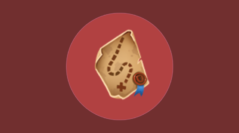
Jan 6, 2019
Hi everyone!
I wanted to share with you my closing analysis of 2018 and what you should expect from me and this blog in 2019.

Poor risk management is a common issue behind the three most significant problems facing the industry: crunching, projects going over budget and projects skipping deadlines....
Read More
Disclaimer: The gaming industry is global, but to make it simpler I will only use US figures. This simplification does not detract from the arguments in the article. Indeed, it...
Read More
Review Agile Game Development with Scrum by Clinton Keith is a must-have for all producers and is well worth a read by anyone interested in modern game production. The author...
Read More
I officially joined the video game industry in June as a product manager and re-located across 3,000 miles (4,828 Km for any readers outside the US). It has been an exciting...
Read More
Dec 29, 2018
Proper project scheduling is underappreciated in indie and hobbyist developer circles. It is usual to read comments encouraging users just to get started and figure it out as they go. Many people also assume that a formal project plan means your team is going full waterfall – a term that carries some negative connotations in game development, which is one of the reasons behind the crunch culture still prevalent at some studios. However, traditional project scheduling has an essential place for established game developers and hobbyist that want to take the step up to full-time indie.
In this article, I will explain why project plans, scheduling, in particular, are useful, how to integrate them with modern (agile) development practices, and finally, I will provide a template that readers can download.

Nov 15, 2018
I have just returned from Blizzcon2018, where I had the opportunity to ask a few questions to several Blizzard employees on how their teams work and what project management frameworks they use to develop their content. This article is my humble attempt to stitch their comments, publicly available information (other articles, job postings), my knowledge of modern development and a healthy dose of speculation to give you all a window into how Blizzard creates – in their own words – the most epic entertainment experiences ever.

Oct 9, 2018
Game development is always a time consuming and expensive endeavor – even if you are a scrappy indie you are losing a ton of money in terms of opportunity cost: you could be working a steady day job for a salary. It is common for Indies and AAA game studios to embark into a long 24+ month development cycle and realize midway that something doesn’t feel right. Maybe the initial concept is just not that fun, maybe management realized that the target market is too narrow to make economic sense to continue development, or maybe the team is not well matched to the scope of the game. Regardless of the cause, producers have a responsibility to their team and backers to pull the plug early.
Recent Comments